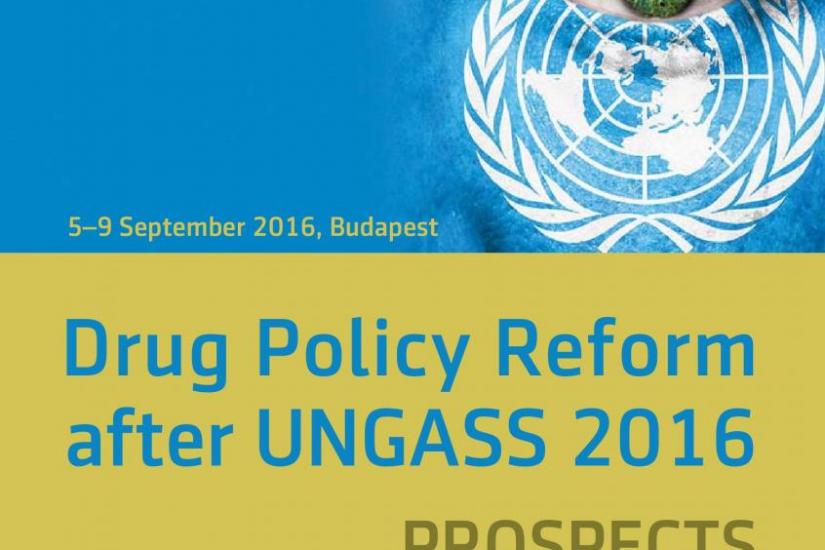
This four-day professional development course is a timely follow up from the landmark April 2016 United Nations General Assembly Special Session on Drugs – an event which showed intense but frustrated pressure for reform and profound division over future direction. International drug policy is at a crucial turning point, with opportunities and also risks posed by fragmentation and dissent. The course will reflect on the pre- and post-UNGASS period, identifi es lessons learned and considers next steps at national, regional and global level. Health, crime, human rights, development and new challenges were identified by the UNGASS as key thematic areas and these will continue to frame priorities, debate and advocacy going forward. Each area will be considered in dedicated sessions that will unpack and assess evidence, best practice strategies for reform, as well as spoilers and obstacles to change.
Read the news item covering the course here.
The course is structured around ‘scene setting’ lectures, working groups and panel discussions and aims to amplify the space for participants to share their professional experience and insights, as well as develop skills of team building collaboration, leadership and communication. A core faculty team of five drug policy experts will deliver the program, with additional support provided by School of Public Policy graduates allocated to each of the participant working groups. We aim to create an environment in which participants can share the experience of mistakes and setbacks and learn how to reorient activities and priorities in the post-UNGASS period.
Course objectives
The course is intended to strengthen and diversify the knowledge base and networks of NGOs, officials, journalists and others engaged in research and advocacy on drug policy. With a view to supporting inter-regional and international experience sharing and collaboration, we encourage applications from around the world. For applicants with a background in drug policy, the four days of focused discussion and analysis will support ongoing professional development and provide an opportunity to share experiences.
Faculty
Julia BUXTON
Acting Dean and Professor of Comparative Politics, CEU School of Public Policy (course lead), Senior Research Associate, Global Drug Policy Observatory, University of Swansea
Watch our course lead Julia Buxton at SPP's latest panel discussion on drugs policy:
Video of Drugs, Art, and Society
Judith ALDRIDGE
Senior Lecturer, University of Manchester
Joanne CSETE
Adjunct Associate Professor, Columbia University
Niamh EASTWOOD
Executive Director, Release
Luciana POL
Senior Fellow, Centre for Legal and Social Studies (CELS)
Participants
The course is open to the following categories of participants:
- Civil society leaders with a track record of analysis, oversight, and policy advocacy;
- Government officials from departments, both central and local level, involved in policy design, implementation, and compliance;
- Professional staff from international organizations that are active in the field of drug control;
- Professionals from development agencies, including consultancies and aid agencies;
- Journalists with previous experience reporting on national or global drug policy;
- Academics and doctoral students undertaking applied research or teaching on issues related to drugs policy.
We also encourage applications from those who may find themselves increasingly responsible for mainstreaming consideration of drug related issues into other policy areas (development, public health, security), with this course serving as a focused entry point for those new to the salience of drug policy concerns and debates.
For the course brochure (including full program) please click here.
Find the participants' handbook here.